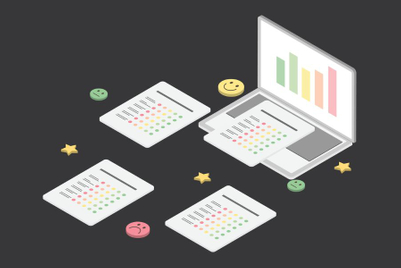.jpg&h=570&w=855&q=100&v=20250320&c=1)
When advertisers review their media accounts with agencies today, their biggest concern and challenge is addressing the types of customer data platforms that require storage and, subsequently, processing their first, second and third-party data.
For example, if an advertiser adopts an agency's system, it is unlikely that they will choose another agency in a media review as the cost of transition will be a lot harder than simply just onboarding a new media partner.
Penelope Siraj, the principal consultant at R3, notes advertisers are concerned with how much they will own and what they can transition the ownership of. She explains agencies can start by being very clear on ownership and the result of the platform's processing and intelligence that can or cannot be extracted.
This is because most agencies today are very aware and conscious that most clients are educated about the ownership of their data. So typically, when getting into a scale holding company lead or global, regional type of accounts, there is no ambiguity about the clients' ownership of the first-party data.
"You do not see pushback from agencies not handing over that data ownership. However, what is potentially ambiguous and potentially a space in which clients will have to be very clear is once the data is processed. Once the platform applies algorithm logic or proprietary anything to that data, they have to ask if the data is shared and if that ownership can be transitioned," Siraj tells Campaign Asia-Pacific.
"Data is not just data as there is the original data and the data that results from processing. Clients also have to consider if the data is transitioned; can they transition it the same way it's organised? What happens if the relationship ends, even if it's an amicable end when they move to another agency or decide to take it in-house, for example? Will it be an easy like-for-like transition? Or is it a more complicated transition? To that end, it is a more significant kind of martech conversation in which clients have to decide how to integrate parts of these tools into an existing martech ecosystem."
Siraj adds clients need to know how they can plug and play, whether these tools are platform-agnostic and if they play well with other vendors' devices. That will influence the ease of transitioning into being able to do so as some tools are proprietary as they are closed and not designed to play well with others.
"Of course, some vendors specifically design their tools knowing that they are part of what is going to be an increasingly kind of complicated ecosystem of various types of martech solutions that must all feed back into either central or be provided by the primary data lake and essential CDP," she says.
Pankaj Nayak, managing director for the Singapore media group at Dentsu International, says if the client and their agency had previously created a cleanroom environment where the data flowed in, and the insights flowed smoothly, then the client would have no problem.
He cautions that will change when the client changes a media partner because of how the media data flows in and gets integrated with the rest of the data and then the ecosystem.
However, he says it is not a critical issue because everything does not need to go back to square one as long as clients identify where the problem is. For example, they have to ask if there is a problem with the current overall setup or a problem with their media partner.
"If so, then they need to change the media partner. When doing so, what is critical in the RFP process is they have to set an obvious challenge, which says, 'this is my current operation; how well can you integrate into this?' Clients need to ask agencies to show the use cases where agencies have worked with partners outside of the ecosystem or their technology or partnerships. Agencies need to demonstrate to clients how they can bring that to a seamless transition," he explains.
"Most of the time, it is a challenge for an agency when a client puts a live case on the table, where the agency needs to demonstrate what they have put in theory. However, it also differentiates between what is a tangible workable solution, which can start within the transition period, versus what is smoke and mirrors. Our clients have given us some challenges where we have demonstrated our ability to bring tangible solutions to the table."
—Pankaj Nayak, Dentsu International
With the industry moving towards a single view of consumers like identity resolution, Nayak says there are many solutions in the market today. That means there is no one solution that is absolutely above all. As long as agencies can educate the client within these restrictions and parameters, there is a suitable solution.
"Agencies should take the clients on a journey rather than sell them something they cannot deliver," he adds.
Data interoperability
Advertisers are getting increasingly savvy and addressing the questions that come with Web3 and a cookieless world.
Siraj says R3 encourages clients to ask themselves these questions internally, like what they have in place and what their team can support. Correspondingly, they will need agencies to augment what they have as an internal support structure.
"Data interoperability is becoming more known among digital marketers and those with platform expertise. However, it does need to be talked about more and looked at more closely," she explains. "There are ways in which certain types of systems tools and making confident choices can make a potential transition to another vendor more complex and make it more prohibitive cost-wise or sometimes just a lot more of a hassle. While some systems are not built to transition very well, I doubt anyone is trying to use it as a strategy at the end of the day. Instead, they might have made legacy choices, built a 'Frankenstack', and found it more difficult to exit some older relationships."
Siraj is hopeful that the industry is getting a bit savvier about what transparency and interoperability are required, basic transmission standards or data ownership. She points out China just launched their own personal data laws, which is significant for a market that has always had a much more kind of hardline approach to it.
"The fact that these things are becoming formalised also means that these are things the industry is concerned about and also hopefully talking about more," she adds.

Agreeing, Laura Quigley, the senior vice president for APAC at Integral Ad Science, points out that the promise of the open web starts with interoperability, and third-party data has traditionally served as a key to that in the ecosystem.
"Is data interoperability going to be baked more in the future? Absolutely. As we see brands going back to embracing first-party data, we will see this grow a lot more, and we will see the interoperability expand and build on that stickiness," she says.
"Tighter interoperability could create a more significant opportunity for brands, agencies, and consumers to feel the industry is addressing privacy-safe and sustainable issues."
Will media reviews die?
Agency and their clients must be happy with their relationships and form long-lasting partnerships because it's a win-win situation.
However, even within these win-win situations, there is space for the evolution of the scope and having a point in time where agencies and their clients have a checkpoint where they look critically at the needs of the client, existing tools or offerings in the industry that can be incorporated to adjust the scope, and then do a review very pragmatically.
Siraj points out reviews may not be open and closed and can also be in various forms, and advises both the client and agency to take the time to reassess whether the resources are needed and whether there is anything that can be implemented ahead of time.
"That will provide future proof of the account, and we will no longer see the urban myth of reviews coming as a point when the relationship has soured or is a contentious situation. Instead, we want brands and agencies to have a healthy partnership and ensure that needs on both sides are addressed," she explains.
She says the industry will see a lot of interest from advertisers in all parts of the spectrum, from the extreme ends of like, "oh, we have not done anything because we have been waiting to see what to do" to "we have been embracing a lot of these changes, but we are realising now that maybe learning to take a step back and see whether all of these things that were put into our stack are right for Web3."
For example, Google moving the cookieless deadline is a trending topic, but at the same time, it has created so much uncertainty. That is making a lot of people pause and consider what the next step is.
There is also a wait-and-see approach as everyone is taking steps to own their first-party data and determine whether they implement the solution or bring on new technology to become part of their stack.
In the view of Hasnain Babrawala, the founder and CEO of Fame Media Global, he says media reviews are here to stay as advertisers consolidate their media and communications planning under one umbrella to manage performance, marketing, CRM, PR, and media.
"One needs to optimise the communication budget. Pricing, in my view, price sensitiveness is something which is always going to be there, but says 10 years ago, or five years ago, everything came down to the CPRP or cost per unit, and you know brands awarded businesses," he explains.
"But today, it's going to be on value. So the negotiation will be on who will offer a greater value in dollars rather than absolute reducing or being cost-effective."



+(900+x+600+px)+(3).png&h=334&w=500&q=100&v=20250320&c=1)
.jpg&h=334&w=500&q=100&v=20250320&c=1)





.jpg&h=334&w=500&q=100&v=20250320&c=1)


.jpg&h=268&w=401&q=100&v=20250320&c=1)



.jpg&h=268&w=401&q=100&v=20250320&c=1)

